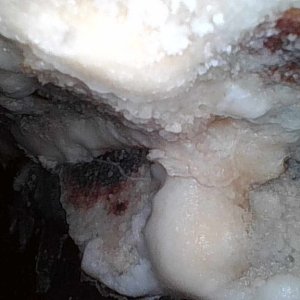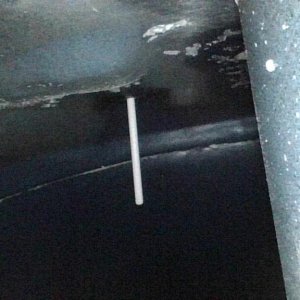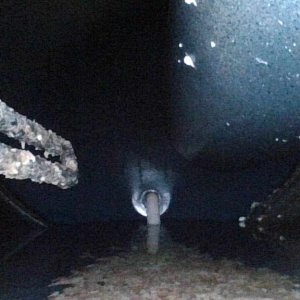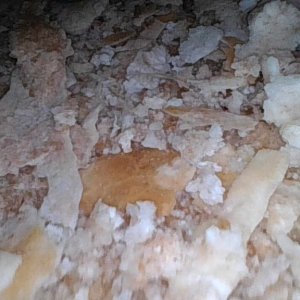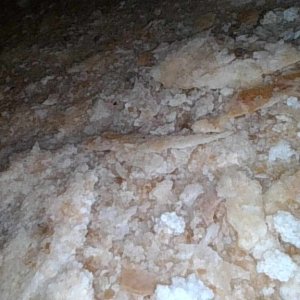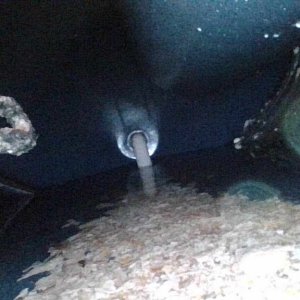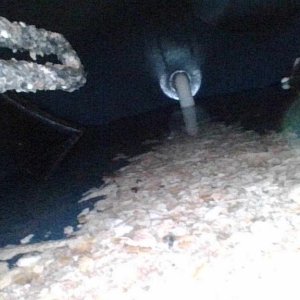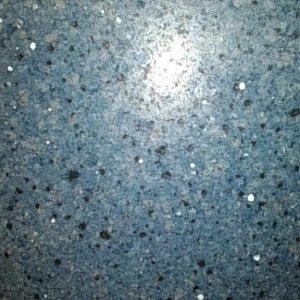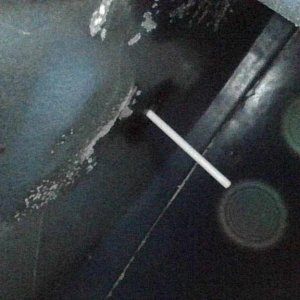This water heater has never been flushed. I'm surprised at how much debris is on the bottom of the tank. I believe the debris is from minerals flaking off the electric and propane heating elements. The amount of deposits still on the propane heating tube worries me. I wonder how much the build-up affects heat transfer?
Electric heating element



Temperature sensor?

Debris on bottom of tank


Looking straight up in tank, the top looks to be uncorroded.

This is the most troubling image - the build-up on the propane heat exchanger tube. I'm going to try to spray it off with a Camco flush wand.

Entire album
Electric heating element



Temperature sensor?

Debris on bottom of tank


Looking straight up in tank, the top looks to be uncorroded.

This is the most troubling image - the build-up on the propane heat exchanger tube. I'm going to try to spray it off with a Camco flush wand.

Entire album

